Willard Grant Conspiracy - Interview
by John Clarkson
published: 24 / 9 / 2009
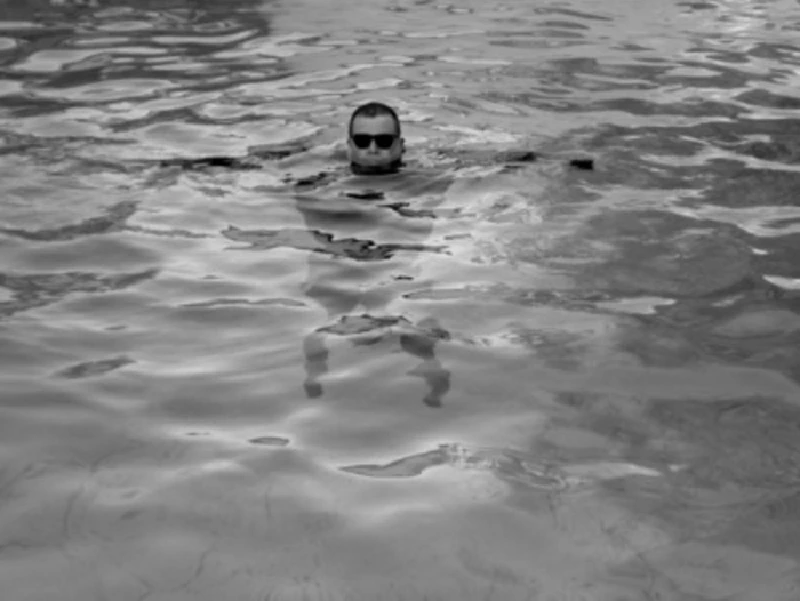
intro
At a show in Edinburgh, Robert Fisher from the Willard Grant Conspiracy speaks to John Clarkson about the split reaction to his band's last album, 'Pilgrim Road', and their just released eighth album 'Paper Covers Stone', which features both reworked old songs and also new material
“Last night was really cool,” says Robert Fisher. “I can’t remember exactly the first time that we played Aberdeen. It must have been about eight or nine years ago though and that night there was a guy with his daughter there. She was about 14 or 15. She was a little punk girl, a tiny little thing and apparently she had bought ‘Mojave’ for her Dad for Christmas and ended up liking it so much that she had taken it away from him. He was there again last night. She is now a prosecuting attorney in Edinburgh. “Then last night after I had spoken to him, this father/daughter team walk in and she is tiny, and has bright red fuchsia hair. They come to the table and it is exactly the same fucking story, but in reverse. She is really into the band and has played a CD for him and he has got into it as well and they have come to a show together, and I was thinking, ‘What a great thing this is. This Aberdeen father/daughter scenario! What’s in the water here apart from the granite?’” Fisher is in Edinburgh tonight for the first time in almost a year and a half. He is a week into a European tour that has already seen the latest permutation of his ever revolving band, the Willard Grant Conspiracy, play three dates in Ireland, a festival in Wales and a show in Manchester before heading for Scotland. Two nights ago they were in Glasgow, last night Aberdeen, and, after tonight’s show, they will move on again to Newcastle and further dates over the next week in England. More gigs will follow in the Netherlands, Scandinavia, Germany, Italy, Spain and Belgium before the tour winds up in six weeks time in Greece. Both Robert Fisher and the Willard Grant Conspiracy have come a long way since that debut gig in Aberdeen which took place in what it later transpires was the summer of 2001. Even then though, the Willard Grant Conspiracy had already been together for several years, having formed around the nucleus of the Californian-born Fisher and his guitarist friend, Paul Austin, in Boston in late 1995. Fisher and Austin had met in Austin’s home town of Portland, Maine in the early 1980s, where they had been together in a thrash band called Blue Section which released a single. They had then both gravitated to Boston, where they had continued to play together on that bigger city’s independent music scene in various punk bands including Laughing Academy and the Flower Tamers, each of whom had recorded unreleased albums. The Willard Grant Conspiracy was formed by accident one weekend when Fisher and Austin were asked to road test a friend’s new home studio, while their regular drummer in the Flower Tamers, Malcolm Travis, was away on tour with Sugar. The majority of the Willard Grant Conspiracy’s first album, ‘3 a.m. Sunday @Fortune Otto’s’ was recorded then. Fisher and Austin decided to adopt a looser, less rigid approach with the WGC (as it soon sometimes became also known as) than in their previous bands, running it as a rotating consortium and drafting in other members both as and when they were available and required. Stage shows and concerts have since then come to feature anything between two and twelve members, while studio albums have employed the services of as many as twenty other musicians. The group signed to Slow River Records, an offshoot of Rykodisc, which re-released ‘3 a.m. Sunday @Fortune Otto’s’ (1996) which had previously come out on Fisher’s Dahlia label, and put out as well their next three albums, ‘Flying Low’ (1998), ‘Mojave’ (1999) and ‘Everything’s Fine’ (2000). As the Willard Grant Conspiracy began to make an impact in particular on Europe through relentless touring, it found itself increasingly, because of its use of roots-based instruments such as mandolins, strings and banjos, being lumped by critics in the alt. country bracket. Its influences, however, were far wider, and, embracing also elements of folk, punk, rock’n’ roll and blues, built on as much from the legacy of Bob Dylan, the American Music Club, the Velvet Underground, Nick Cave and Sonic Youth as they did Hank Williams and Johnny Cash. 2001 was a watershed year for the band. Paul Austin, who was exhausted by gigging, quit after playing a final lengthy tour of which the Aberdeen date was a part, and, having begun a new relationship, moved to Seattle where he has subsequently married. The WGC’s deal with Rykodisc also came to an end. Fisher, who moved back to California in 2002 after 24 years away, undeterred soldiered on alone. The Willard Grant Conspiracy’s 2003 fifth album, ‘Regard the End’, mixed long forgotten traditional ballads with several of Fisher’s own folk compositions, and, taking a wry, but against-the-odds curiously uplifting look at death, was the band’s masterwork. Released as all the WGC’s subsequent albums to date have also been in a twin-pronged arrangement on Loose Music in Britain and the German label Glitterhouse Records in the rest of Europe, it was an Album of the Month in the influential monthly music magazine ‘Uncut’, earned similar critical praise elsewhere and became the band’s biggest seller to date. The Willard Grant Conspiracy followed this with a compilation record, ‘There But for the Grace of God’ (2004) and their sixth studio album, the fiery and psychedelic ‘Let It Roll’ (2006), both of which were similarly well-received. The last year and a half has not been easy for Robert Fisher. The group’s seventh studio album, ‘Pilgrim Road’ arrived in May 2008, and, co-written with Scottish composer and arranger Malcolm Lindsay and recorded predominantly in Glasgow, was both orchestral and ambient. Inspired in part by the death at 44 of one-time WGC guitarist Drew Glackin in January 2008, it was tormented with religious doubt and conflict, finding Fisher, who had been raised a Baptist, questioning his belief in and the existence of God. It divided fans and critics. Some, including several regulars on this site, admiring its cope of ambition and honesty, felt it was another masterwork; others were less convinced finding its tone relentlessly dark and its sound (and Lindsay’s keyboard arrangements around which the other instruments and at one point a gospel choir drifted in and out) dirge-like. It sold poorly in comparison to other recent albums. A ten date European tour to promote the album, which found the WGC supported by Giant Sand’s Howe Gelb and Fisher supported by a backing band of ten musicians including the Walkabouts’ Chris Eckman, also didn’t break even. The Willard Grant Conspiracy’ s current European tour is to promote their eighth album, ‘Paper Covers Stone’, which reworks several of the songs from Fisher’s back catalogue, and also includes two new offerings and a cover of Tom Waits ‘The Ocean Doesn’t Want Me’. Robert Fisher has sometimes said that each new WGC album is a reaction to the last one, and ‘Paper Covers Stone’ on the surface seems in some ways the direct antithesis of ‘Pilgrim Road’, having been completed in two days rather than two years. It was also recorded in a series of solo, duo, trio and quartet arrangements with a handful of other musicians rather than a small orchestra. Yet it has more in common with ‘Pilgrim Road’ in other ways than it might initially appear and, like that latter album with its ambience, albeit in a different way, reveals the same fascination with minimalism. As well as Fisher on vocals and guitar, the album also features Boston-based viola and saw player David Michael Curry, who has appeared on every WGC album since ‘Flying Low’. Also present are Sean O’ Brien, the band’s original guitarist, and former Dream Syndicate front man and solo artist Steve Wynn, who has played off and on with Fisher since the beginning of the decade, on guitar and an assortment of other instruments including the mandolin and piano. The album was produced in Vermont by producer and engineer Pete Weiss, who worked on the ‘Flying Low’, ‘Mojave’ and ‘Everything’s Fine’ albums. Curry, playing his first UK shows with the WGC in eight years, is part of the touring party for this European tour. Also in the line-up are Glasgow-based guitarist Paul Tasker and vocalist Iona McDonald, who are also the support act with their own project, acoustic duo Doghouse Roses. The night of the Edinburgh show is Fisher’s birthday. Pennyblackmusic finds him in good, if reflective form. Over the course of an hour before the show, in what is remarkably our seventh interview with him, he spoke to us about ‘Pilgrim Road’, the new album, and his thoughts on the Willard Grant Conspiracy’s future. PB: The last few tours have featured increasingly expanded line-ups. You have regularly been going out on the road with six or seven people, and that culminated with the ‘Pilgrim Road’ tour last year which had a working staff of fourteen. Have you been enjoying playing with a stripped down line-up again and just going back to basics? RF: Yeah. After ‘Pilgrim Road’ David Michael Curry and I did a duo tour though. It just didn’t come to the UK. We spent about two months on the road, just the two of us, and then were joined for the last part of it by the Italian musician Cesare Basile and his piano player, Michela Manfroi. It was in some ways similar to this. I like the stripped down thing. I like the big thing too, but it has its challenges in many, many areas, and not just the obvious ones such as how you do pull off putting out a crew that size financially. There are also the organisational aspects of it and the inflexibility that comes with it and the responsibility you feel to the people that are playing in it and the promoters who are doing it. The stress of those big tours is really hard. I have been enjoying this low stress version of touring. If there are fourteen people with you, you have to answer to fourteen people instead of just three. PB: It’s been eighteen months since we last saw you in Britain. This has been your longest absence since you first started coming over here in 1998. Why has there been such a long gap? RF: Couldn’t get a gig (Laughs). When we did the duo tour, we got shows in Europe, but we couldn’t really get shows here. The word from the bookers was that it was too close on the heels of ‘Pilgrim Road’ and that tour, so we were like, “Okay. We’ll just wait a while.” That is just the way these things work. I don’t think that the bookers necessarily got it right. This is not a baby band. This is not our first gig. We want to keep seeing more people. We want to develop what we are doing and to introduce ourselves to new people. That is part of the reason for us being here, but at the same time this is a band with a serious past and a pretty dedicated following. Any night of the week you are going to find people at our shows. There might not be 600 people. There may not be 300 people, but there will be people there. The other night in Glasgow Neko Case and the Low Anthem were in town and we still had a good house. We had about 200 people there. The Willard Grant Conspiracy has never ever been about swimming in the middle of the river with everyone else. We don’t do that. We never have. The whole reason why Paul Austin and I went for this band to begin with was that we were tired of trying to complete in that ridiculous arena of indie rock. We still had our previous band the Flower Tamers going at the time, with all it illogicality, and we just decided that the Willard Grant Conspiracy felt right because it didn’t fit into any kind of preconceived notion anyone had for what music is supposed to be .Yet it still ticked all our boxes for what we wanted from music, which was intensely personal and observational music that affected people at a lot of different levels and was an inclusive thing rather than an exclusive thing. That whole rock ‘n’ roll thing wears thin on me. The whole “We’re cool. You’re not” aspect of it still drives me crazy. PB: ‘Pilgrim Road’ was by your own admission a difficult album. It really divided the fans. It is an album that very few people have had a neutral opinion about. Were you surprised about the vehement reaction, both positive and negative towards it? RF: People are pretty divided. (Laughs). At one level I was disappointed that it was not better understood or received. I had hoped that people in our audience expected me to take risks. I think that it is something I have talked about in interviews fairly often. If I am feeling too comfortable about doing something, then I think that is the wrong place to be and that motivates me a lot in terms of what we do as a band and what I do as a performer .I think it should have been expected that something like this would come. There is not a lot in fact on ‘Pilgrim Road’ that is that complex. The songs are pretty simple. It is just that, when Malcolm Lindsay and I first talked about doing ‘Pilgrim Road’, we decided to us non-traditional form, and not do the standard A-B, A-B thing and throw in a bridge every so often. I would also argue strongly that the songs on ‘Pilgrim Road’ are not that different and far removed from songs that I have written previously. There is a song on ‘Everything’s Fine’, for example, ‘Kite Flying’, and ‘Kite Flying’ should have been a really good indication that ‘Jerusalem Bells’ was going to happen eventually. In the same way ‘Miracle on Eighth Street’ was not that far removed from ‘Soft Hand’ on ‘Regard the End’, and I would argue that ‘Lost Hours’ is not that far away from ‘River in the Pines’. I have all these set piece kind of songs that I write. If you look at the history of the songs that I write, they all fit in with each other. Even the most extreme song on ‘Pilgrim Road’ which I think is ‘Painter Blue’ in terms of its orchestration and arrangement it is not that far away from ‘Sticky’ from ‘Mojave’. While at one level I was disappointed that it was not better understood or received. I am also at another level totally cool with the notion. I think that it is important that your audience can disagree with you. I don’t think that everything that I do has to be liked by everybody. If I thought that, I would have quit a long time ago (Laughs), so I am okay with it too. PB: Lyrically ‘Pilgrim Road’ was different as well. Religion has always been one of the dominant themes of your albums. While on your previous albums, you have always seemed to show an element of belief, this album, and especially songs like ‘Vespers’, were about, however temporary, a total loss of faith RF: I think that a lot of people misunderstand where I come from in that area. I was born a Baptist and I was baptised that way and that was the church I was brought up in. I was always very uncomfortable though with the notion of church. I didn’t like it, but was attracted by the ritual in a weird way, not that the Baptists are big on ritual, but was attracted by what ritual there was. I never liked the solid line aspects of the church. It always chafed pretty badly with me. While I have known some very good ministers, and people-Malcolm Lindsay is one-who are devoutly religious but also open-minded enough to leave room for questions, that is the thing that has always bothered me about the church and religion in general. There is this attempt to insist that your mind should be closed to everything but the thing that is being delivered to you. I have always had a problem with it. That is part of it. Part of it comes from being a recovered addict also. There is this whole notion in Alcoholics’ Anonymous of there being a higher power. In AA that higher power can be whatever you choose it to be for the purpose. They don’t want to screw it down to one particular God or something like that. I really like that notion. Religion and churches exist in my mind because humans have a need to find something bigger than themselves. You have got all these different varieties of religion, each one providing something a little different to their audience, and all existing because of that. Not one is right and not one is wrong. That is what they are doing though, delivering to an audience . For me there is this thing in which whenever you go looking for something that is bigger than yourself for what you believe in, most of the time you are disappointed by what you find. You are disappointed by the priests and ministers and rabbis and theologians and philosophers and hippies and punks and whoever espouses some cobbled together thing or pure aesthetic. You find that they are often just corrupt little people and you are disappointed by them. At the same time though I think there must be something in it simply because all of us are wandering around thinking that there must be something there. There is this John Knowles story, ‘There Must Be a Pony’. In it the main character is sitting digging through this a pile of shit in his room and his Dad finds him and says, “What are you doing?” and the kid says. “There must be a pony in here somewhere” (Laughs). I think my attitude to religion is something similar to that, but I find myself disappointed more than I am not. PB: You haven’t quite given up the idea of a God then. RF: No, I haven’t. I think ultimately I would describe myself as a humanist optimist. I want to believe that there is a better nature in human beings and in things. I want to believe that we can appeal to this better nature for a better way of life for the people who live on the planet, and the planet as a whole, but I am constantly proved wrong. I am challenging that assumption, but I would like to be proved wrong. I am, however, also not blind. PB: You were very uncertain at first about doing ‘Paper Covers Stone’. Tom Bridgewater who runs Loose Music had been very keen for you to do an album of re-workings of your own material for quite a while, but you were concerned about repeating yourself. When did the idea finally catch a hold of you? RF: The idea of doing ‘Paper Covers Stone’ finally caught hold of me for two reasons. Firstly Dave Curry and I had talked about doing a record together, the two of us writing songs together, him writing half and me writing half, and then touring it. When we got home from the duo tour just before Christmas last year, I spent a few days in Boston. We talked then about this album that we were thinking about making and both realised that we didn’t have time for it and to make the album that we wanted to, so we agreed to put it on hold. When I got home to California, Tom Bridgewater phoned me and brought up again this idea. I said to him, “I am still not crazy about the idea, but let me think about it”, as he was really insistent and really wanted it, and so I started thinking about it, and I thought, “I could call Dave and say why don’t we go and do a couple of days in Vermont and record and just see what happens I figured that both of us could handle that and it fitted into that concept. Then once I got Dave on board with that, I called Sean O’ Brien and asked him if he wanted to be involved. Then I called Pete Weiss and asked him if he had the time. After that I was on the phone to Steve Wynn and mentioned it to him and he asked if he could come too. I had, therefore, decided that I wanted to do this thing anyway. Right up until the time that I arrived at Vermont, I still wasn’t sure though what I wanted to accomplish though with this project, and the second thing didn’t hit me until then. On the first morning no one else was there. It was just Pete and myself, so that morning I sat down at about nine in the morning, which a stupid hour to be trying to make music, and just started playing and singing by myself at the same time. Pete was like, “Wow! This is sounding really cool” and I was like, “Great. So let’s keep going.” I just kept playing and by the time Dave arrived at about midday I had the basics for sixteen songs down. It was the process of recording those sixteen tracks that convinced me that it was okay to do this record. I realised then that what I was doing then was really just doing what I do live and not having an agenda. The ‘Pilgrim Road’ tour was different, but for all the shows with smaller line-ups I don’t really know what I am going to play next. I let each new song that I play suggest the next song emotionally or otherwise. Anyone who plays with me has a general idea of where we are heading in the song, but they are then allowed to improvise or express their own emotional connection. It is like I am saying, “Hey kids. Let’s charge the hill” and everyone else fall into some sort of formation (Laughs). This is the only record we have ever done like that, not just with my parts, but everyone else’s as well. I know that we have allowed live albums to be released, but this was different. This was far more improvisational than our other studio albums. It was far looser and more open. PB: Why did you decide to work with Pete and Sean again? You were really going back to your roots with this as neither of them has appeared on any of the WGC albums after ‘Everything’s Fine’. RF: I really miss Boston and the East Coast. I miss my friends there and being able to call Pete and Dave or whoever out there and saying “Let’s play.” The more I thought about, the more I thought, “Why not do it with the original crew?” PB: ‘Paper Covers Stone’ features ‘No Such Thing as Clean’ from ‘Flying Low’. There are also some songs from ‘Everything’s Fine’ on the tour only EP, ‘Trunk in the Attack’, which was recorded at the same time, but pretty much everything else on the album wasn’t material that you had worked on with Sean or Pete. You had done a little bit with Dave and a little bit with Steve Wynn, but not that much and most of it was post ‘Regard the End’. Was that a criteria before you started the record or was that just the way it went? RF: There are two reasons for that. The first was my publishers kept saying, “Please don’t go into the Rykodisc catalogue too far” and I have to understand that. They have been incredibly supportive of me and I appreciate them a great deal, so that was something that I was concerned about. I wasn’t going to completely pay attention to them (Laughs), but I wasn’t going to ignore them. Also with Paul Austin no longer involved, I feel that I don’t really want to visit a bunch of things. There are a bunch of songs which Paul and I wrote together, and upon which Paul plays them better than I do. I don’t really want to tread on Paul’s parts. I think that material works for what it is, but I don’t want to really revisit a lot of it now. If you look at the songs that I now play there from that period of that time, such as ‘Notes from the Waiting Room’ and ‘No Such Thing as Clean’, they are all songs that I almost entirely wrote. Paul would then help me figure them out. I would then take them to Paul and say, “Hey, look at this. Does this work?” and then Paul would say, “We can do it this way.” They were largely my songs though. It is not that I don’t appreciate Paul and don’t like the songs that we did together. I love those songs Paul and I are still friends. We talk at least once a week by e-mail and if not by some other thing. We have actually just done a song together. Tom King (WGC drummer-Ed) and I went into a studio and recorded it with our friend Sam and then I sent it off to Paul and he put some stuff on it and mixed it. The possibility is that we will still do other things together as well. I can’t speak for Paul, but I think that he feels similarly. He is okay with me playing certain songs, but there are others which he would rather I left alone. PB: You have said already that your parts for ‘Paper Covers Stone’ were recorded really quickly. Did the others put down their parts equally quickly? RF: Two of the songs are actually live, ‘Ghost of the Girl in the Well’ and ‘Preparing for the Fall’, were recorded live with the whole ensemble playing in the room at the same time live. Everything else was a reaction to what I had already laid down earlier in the day, and most of it was recorded generally in one take or two takes at the most. PB: There are three new songs on the album, ‘Scars’, ‘Preparing for the Fall’, and the Tom Waits cover. Why did you decide to add those? Were you trying to make a point and show that the WGC is still very much an active force? RF: I think having released the amount of records that we have released in the relatively short period of time in which we have done it I don’t have a lot to prove about whether or not I still have ideas (Laughs). ‘Preparing for the Fall’and ‘Scars’ are both songs, along with some other new songs, that have been floating around for the last year or so and felt like they fitted on this record. The Tom Waits cover I have been doing live and that fitted as well. In the back of my mind I was having this conversation with Tom Bridgewater. He had said that he wanted something like the thing that I did live. I felt,” Okay, if that’s what you want, let me give you something, but with a few twists.” If I just wanted to make a live record, I would have just done a live record, but I didn’t want to quite do that either. PB: Last question. Where do you go from here? You are always working on things. The last time that we spoke to you, you were doing something with Kirk Swan from Dumptruck. RF: Yeah, that is still going on. I have been doing some rehearsing with Kirk Swan and Robert Lloyd and Tom and Sam. Robert and I talked about doing an album at a Steve Wynn gig not too long ago in LA and Tom and I have been talking about it a lot. That might be a possibility. I am a little worried about that one though because if I am going to do it with those guys I would like them to be able to play it out and Robert has a heavyweight job. He is a television critic for the ‘LA Times’. He is a very, very good writer, an extraordinary writer and Kirk has a heavyweight job as well. They have a limited amount of flexibility to what they can do, so I have to really think about how I can present it. It’s not really enough to think about the recording. You’ve got to think about what you are going to do with it as well This is also all very mundane sort of stuff, but the last ten years have been really risk-taking financially and I have lost a lot of money putting the band out on the road. I need to address that, so I am kind of thinking that maybe I need to go back to full-time work for a while. That may be part of the equation too. I have always worked, but maybe need to just flip it back around, so music isn’t first and work is and music second, which is the way I did it up until the late 90s. PB: So we might be seeing a bit less of you over here? RF: Maybe. I don’t know. I like it a lot, so it is pretty easy to talk me into doing stuff. I wouldn’t say that it is a definite plan because it is not. There is so much stuff that pulls at you in different directions in terms of what you want to do and what is the right thing and the responsible thing to do. I am essentially a self-destructive person. It is pretty easy for me to convince myself that I am doing the right thing when in fact I am really doing the wrong thing (Laughs). It is sometimes difficult for me to figure out exactly what I will be doing until I get there. PB: Thank you.
Band Links:-
https://en-gb.facebook.com/WillardGrantConspiracy/https://twitter.com/willardgrant
https://www.willardgrantconspiracy.com/
https://en.wikipedia.org/wiki/Willard_Grant_Conspiracy
Picture Gallery:-
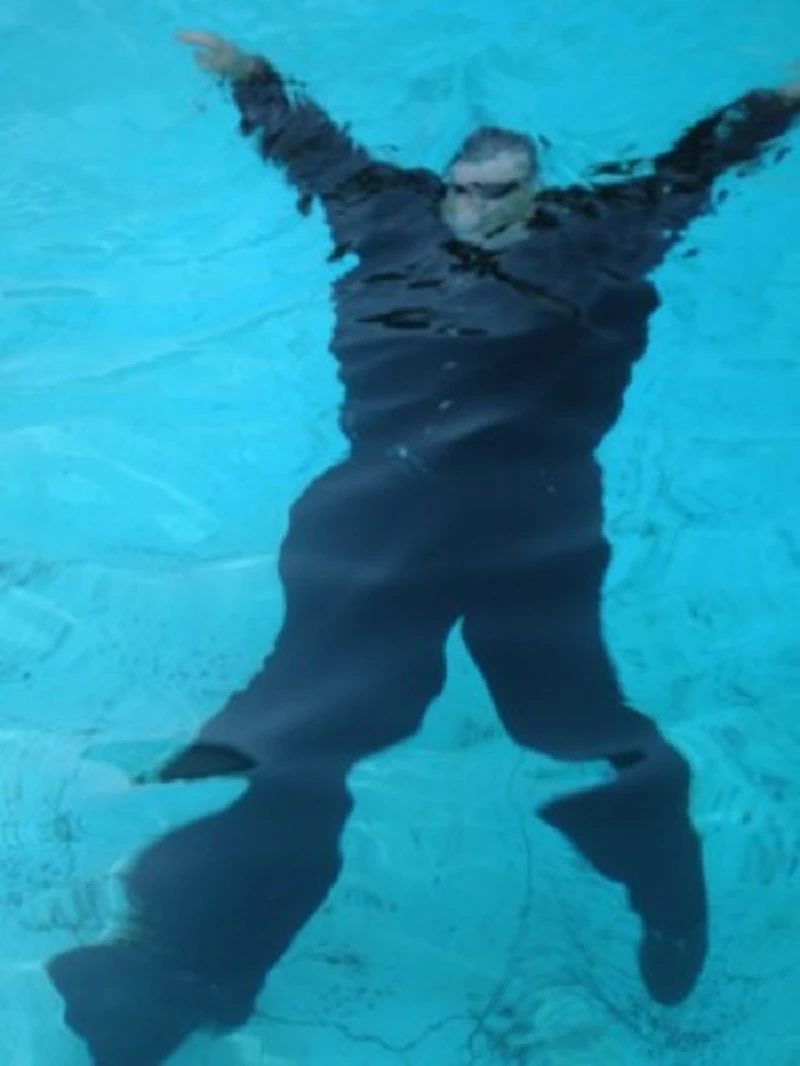
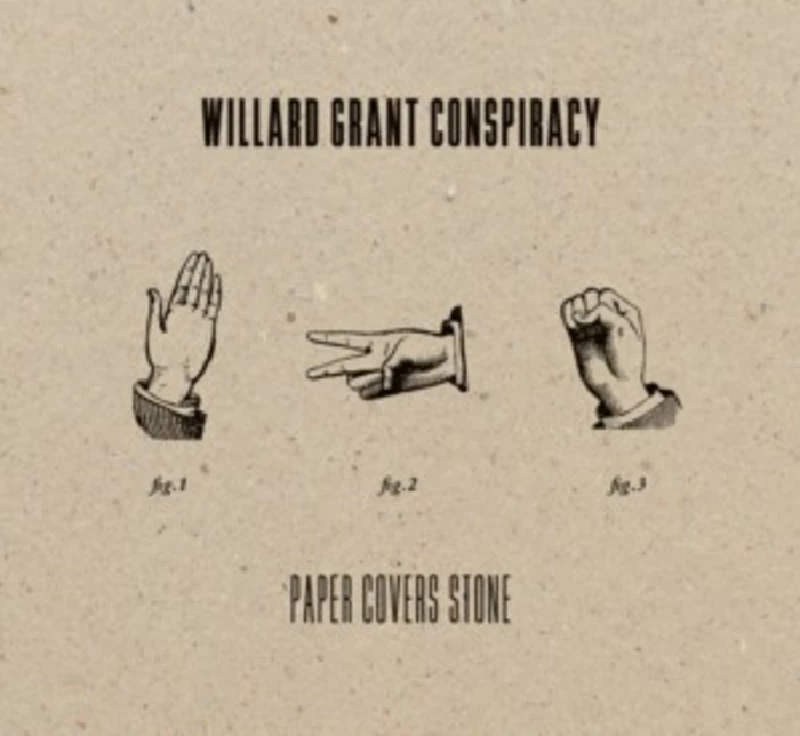
interviews |
|
Interview with David Michael Curry (2019) |
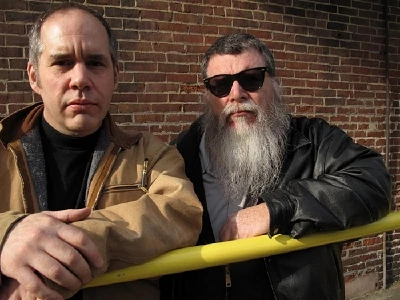
|
| Willard Grant Conspiracy viola player David Michael Curry talks to John Clarkson about its tenth and final album 'Untethered' which was completed after the death of its front man Robert Fisher during its recording. |
| Interview (2013) |
| Interview (2008) |
| Interview with Robert Fisher (2006) |
| Interview with Robert Fisher (2003) |
| Interview Part 2 (2000) |
| Robert Fisher Interview (2000) |
| Interview Part 1 (2000) |
live reviews |
|
Garage, London, 18/9/2009 |
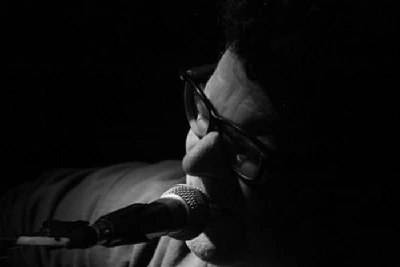
|
| In an evening fraught with difficulties and distractions, Ben Howarth at the Garage in London watches Robert Fisher's Willard Grant Conspiracy, against the odds and a heavily reduced stage time, play a riveting and forceful set |
| Majestic Theater, Detroit, 24/9/2009 |
| Bloomsbury Theatre, London, 18/5/2008 |
| Luminaire, London, 9/11/2007 |
| Dingwalls,, London, 9/5/2006 |
| Edinburgh Village, 11/7/2002 |
features |
|
Ten Songs That Made Me Love... (2017) |
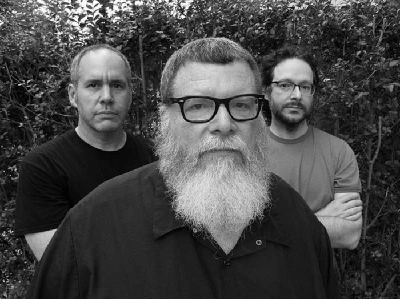
|
| In 'Ten Songs That Made Me Love...' John Clarkson pays tribute to Robert Fisher from the Willard Grant Conspiracy, who died at the age of 59 in February and who we interviewed many times and headlined our Bands Nights on four occasions |
reviews |
|
Untethered (2019) |
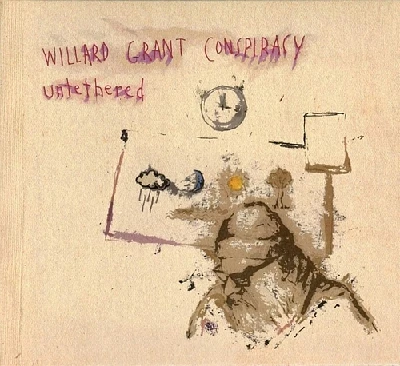
|
| Evocative tenth album from Willard Grant Conspiracy which features the last recordings of its front man Robert Fisher who died in early 2017 |
| Paper Covers Stone (2009) |
| Regard The End (2003) |
| Everything's Fine (2001) |
| Mojave (2001) |
most viewed articles
current edition
Carl Ewens - David Bowie 1964 to 1982 On Track: Every Album, Every SongArmory Show - Interview with Richard Jobson
John McKay - Interview
Colin Blunstone - Thalia Hall, Chicago, 16/7/2025
Billie Eilish - O2 Arena, London, 10/7/2025
Bathers - Photoscapes 1
Visor Fest - Valencia, Spain, 26/9/2025...27/9/2025
Loft - Interview
Sir Tim Rice - Interview
Robert Forster - Interview
previous editions
Manic Street Preachers - (Gig of a Lifetime) Millennium Stadium, Cardiff, December 1999Heavenly - P.U.N.K. Girl EP
Beautiful South - Ten Songs That Made Me Love...
Oasis - Oasis, Earl's Court, London, 1995
Peter Perrett - In Dreams Begin Responsibilities Interview Part One
Boomtown Rats - Ten Songs That Made Me Love....
Coldplay - Wembley Arena. London, 16/8/2022
Prolapse - Interview
Pixies - Ten Songs That Made Me Love...
Trudie Myerscough-Harris - Interview
most viewed reviews
current edition
Davey Woodward - Mumbo in the JumboSick Man of Europe - The Sick Man of Europe
Lucy Spraggan - Other Sides of the Moon
Amy Macdonald - Is This What You've Been Waiting For?
Phew, Erika Kobayashi,, Dieter Moebius - Radium Girls
Bush - I Beat Loneliness
Suzanne Vega - Flying With Angels
Alice Cooper - The Revenge of Alice Cooper
Cynthia Erivo - I Forgive You
Blueboy - 2
related articles |
|
: Interview (2023 |
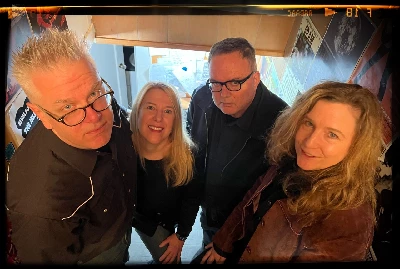
|
| In the first part of a two part interview, both parts which we are running consecutively, guitarist Paul Austin talks to John Clarkson about the reformation of his band The Transmissionary Six after a decade-long absence, and their new album, 'Often Sometimes Rarely Never'. |
| : Interview (2023) |
| Willard Grant Conspiracy/Big Hogg: Feature (2015) |
| Tom Bridgewater: Interview (2015) |
Pennyblackmusic Regular Contributors
Adrian Janes
Amanda J. Window
Andrew Twambley
Anthony Dhanendran
Benjamin Howarth
Cila Warncke
Daniel Cressey
Darren Aston
Dastardly
Dave Goodwin
Denzil Watson
Dominic B. Simpson
Eoghan Lyng
Fiona Hutchings
Harry Sherriff
Helen Tipping
Jamie Rowland
John Clarkson
Julie Cruickshank
Kimberly Bright
Lisa Torem
Maarten Schiethart